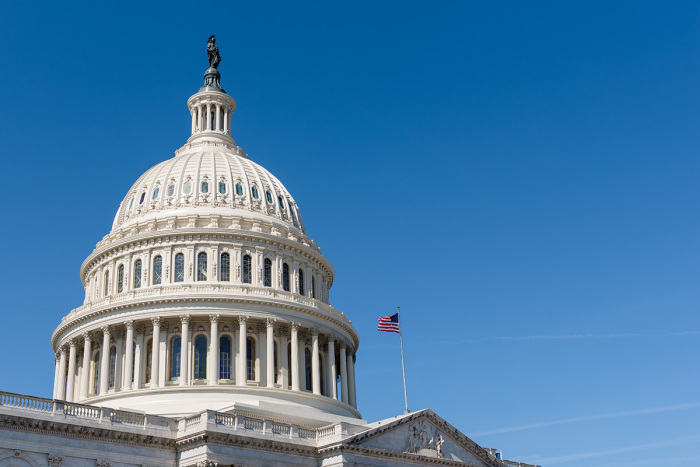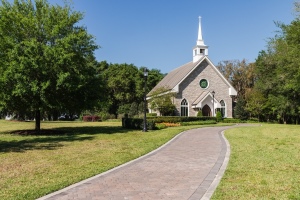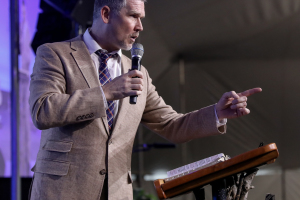House Democrats: Abortion support is consistent with 'fundamental tenets' of our Catholic faith

Nearly three dozen Democrats serving in the United States House of Representatives have signed on to a letter insisting that their support for abortion is consistent with their Catholic faith, even as the Catechism of the Catholic Church strongly condemns it.
Thirty-one House Democrats, led by Rep. Rosa DeLauro, D-Conn., penned a letter outlining a “statement of principles” on Saturday, the first anniversary of the U.S. Supreme Court’s Dobbs v. Jackson Women’s Health Organization case determining that the U.S. Constitution does not contain a right to abortion. In addition to expressing support for abortion, the lawmakers maintained, “The fundamental tenets of our Catholic faith — social justice, conscience and religious freedom — compel us to defend a woman’s right to access abortion.”
“Our faith unfailingly promotes the common good, prioritizes the dignity of every human being, and highlights the need to provide a collective safety net to our most vulnerable,” they added. “We are committed to making real the basic principles at the heart of Catholic social teaching: helping the poor, disadvantaged and the oppressed; protecting the least among us; and ensuring that all Americans of every faith are given meaningful opportunities to share in the blessings of this great country.”
After contending that “bans and restrictions on abortion disproportionately harm those who already endure poverty, discrimination, and racism,” the lawmakers insisted that support for legal abortion is consistent with their conscience as well as the Catechism of the Catholic Church’s command to “always obey the certain judgment of his [or her] conscience.” They noted that the relevant portion of the Catechism goes on to state, “If he [or she] were deliberately to act against it, he [or she] would condemn himself [or herself].”
“We regard conscience as both a sacred gift and a responsibility: we are called to follow our conscience,” the lawmakers wrote. “We believe the separation of church and state means allowing for our faith to inform our public duties and how we best serve our constituents — not that we impose our religious beliefs and customs on others who may not share them. As legislators, we are charged with being facilitators of the Constitution which guarantees religious freedom for all Americans.”
According to the lawmakers, “Catholic teaching honors religious pluralism, declaring that the right to practice one’s religious beliefs must be protected, as well as the right to be free from the religious beliefs of others. Our faith and our country’s Constitution demand that no person impose a single religious viewpoint into law or regulation.”
While the lawmakers pointed to paragraph 1790 of the Catechism to justify obeying their conscience, which supports abortion, the same paragraph also warns that “moral conscience remains in ignorance and makes erroneous judgments about acts to be performed or already committed.” Paragraph 1792 of the Catechism identifies the “assertion of a mistaken notion of autonomy of conscience” as well as a “rejection of the Church’s authority and her teaching” as possible sources of “errors of judgment in moral conduct.”
As for Catholic Church teaching, it explicitly condemns abortion in paragraph 2271 of the Catechism: “Since the first century the Church has affirmed the moral evil of every procured abortion. This teaching has not changed and remains unchangeable. Direct abortion, that is to say, abortion willed as either an end or a means, is gravely contrary to moral law.”
In a statement provided to The Christian Post, pro-life scholar and practicing Catholic Michael New asserted that the lawmakers “clearly misunderstand the Catholic Church’s teachings on abortion,” specifically the Catechism’s declaration that “every procured abortion is a ‘moral evil.’”
“It also states that ‘the inalienable right to life of every innocent human individual is a constitutive element of a civil society and its legislation,’” New continued. “In short, Catholic lawmakers have a moral obligation to support laws and public policies that protect preborn children.”
New described it as “ironic” that the signatories to the letter repeatedly pointed to their “conscience” when defending their support for abortion since “nearly all of the House Democrats who signed this letter have voted for at least one appropriations bill that did not include the federal Hyde Amendment.” As New explained, “These appropriations bills would violate the conscience rights of millions of practicing Catholics and others who oppose abortion by forcing them to pay for elective abortions with their taxpayer dollars.”
The Catholic Church’s established opposition to abortion and Catholic politicians’ efforts to ensure and promote the continued legality of abortion has led to an effort to withhold communion from such figures. Supporters of the effort point to a 2004 letter from then-Cardinal Joseph Ratzinger, who would become Pope Benedict XVI a year later, as the justification for their position.
Ratzinger asserted in the letter that “when a person’s formal cooperation becomes manifest (understood, in the case of a Catholic politician, as his consistently campaigning and voting for permissive abortion and euthanasia laws,) his Pastor should meet with him, instructing him about the Church’s teaching, informing him that he is not to present himself for Holy Communion until he brings to an end the objective situation of sin, and warning him that he will otherwise be denied the Eucharist.”
“When ‘these precautionary measures have not had their effect …,’ and the person in question, with obstinate persistence, still presents himself to receive the Holy Eucharist, ‘the minister of Holy Communion must refuse to distribute it,’” Ratzinger declared.
One of the lawmakers who signed the “statement of principles” published over the weekend, Rep. Nancy Pelosi, D-Calif., found herself barred from receiving communion in the Archdiocese of San Francisco that encompasses her congressional district over her outspoken advocacy for abortion.
While the U.S. Conference of Catholic Bishops stopped short of instituting a blanket ban on communion for pro-abortion Catholic politicians, they did approve a document titled, The Mystery of the Eucharist in the Life of the Church, in late 2021. The document stresses that lay Catholics “who exercise some form of public authority have a special responsibility to form their consciences in accord with the Church’s faith and the moral law, and to serve the human family by upholding human life and dignity.”
Additional signatories to the letter were Reps. Pete Aguilar, D-Calif., Nanette Barragan, D-Calif., Greg Casar, D-Texas, Joaquin Castro, D-Texas, Gerry Connolly, D-Va., Joe Courtney, D-Conn., Madeleine Dean, D-Pa., Mark DeSaulnier, D-Calif., Debbie Dingell, D-Mich., Anna Eshoo, D-Calif., Adriano Espaillat, D-N.Y., Chuy Garcia, D-Ill., Robert Garcia, D-Calif., Sylvia Garcia, D-Texas, Jimmy Gomez, D-Calif., Val Hoyle, D-Ore., John Larson, D-Conn., Susie Lee, D-Nev., Stephen Lynch, D-Mass., Betty McCollum, D-Minn., James McGovern, D-Mass., Kevin Mullin, D-Calif., Grace Napolitano, D-Calif., Bill Pascrell, D-N.J., Andrea Salinas, D-Ore., Mike Thompson, D-Calif., Paul Tonko, D-N.Y., Lori Trahan, D-Mass., and Nydia Velazquez, D-N.Y.
Ryan Foley is a reporter for The Christian Post. He can be reached at: ryan.foley@christianpost.com




























